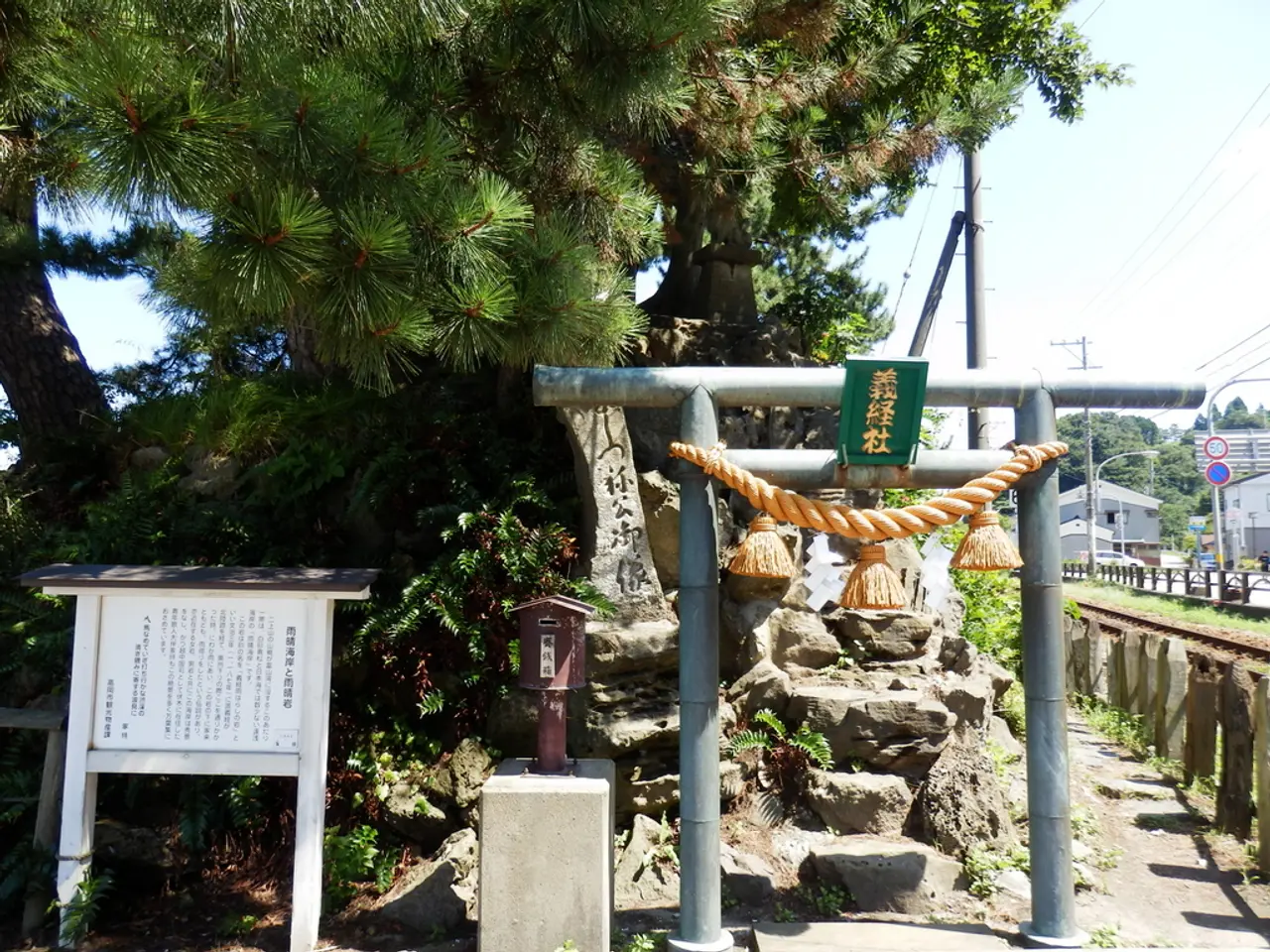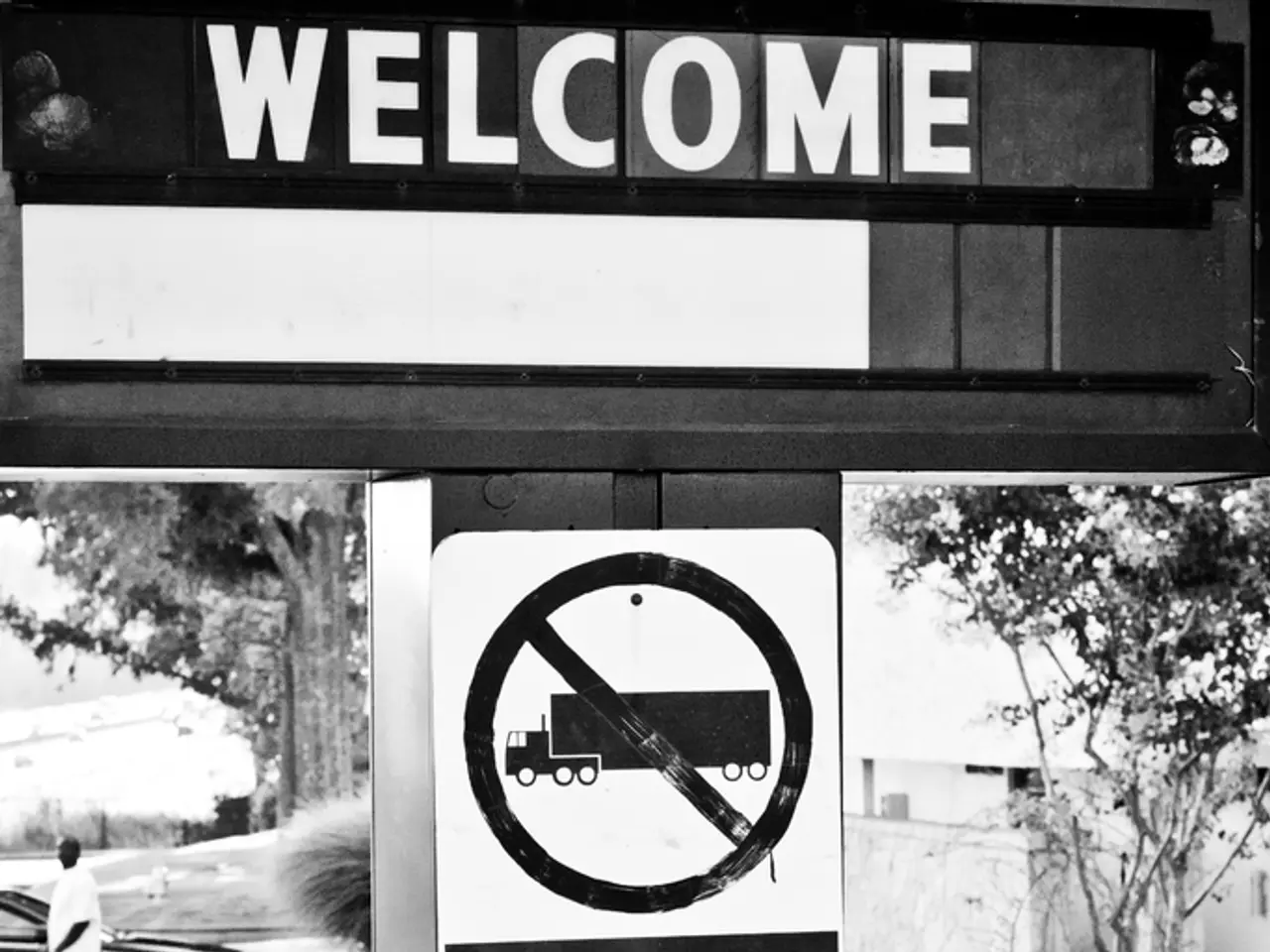Seized charcoal from illicit trade in Uganda redirected towards schools instead of auctioned off
In a bid to combat deforestation, Uganda's government has taken decisive steps to curb illegal activities, particularly in the charcoal trade. Over the past century, Uganda has lost 42% of its forest area, with the country's forest cover declining from about 24% in 1990 to under 10-12% currently [1].
One of the main drivers of this degradation is the charcoal trade, which is fueled by demand in urban markets. The National Forest Authority (NFA) has intensified its efforts to crack down on illegal charcoal production, making 52 arrests related to the activity in 2025 alone [1]. This includes the arrest of a crime ring operating inside forest reserves in June [1].
Legal proceedings have also been initiated, with 19 cases tied to illegal forest activities opened since early 2025. 15 of these cases have been sent to court, and three convictions have been secured, demonstrating progress in enforcing the rule of law concerning forest resource protection [1].
Recognising the need for restoration, the NFA, in partnership with Bank of Baroda and the support of the Bank of Uganda Governor, launched a national tree planting campaign. This campaign aims to restore degraded forest reserves such as Jubiya Forest Reserve in Masaka District [4].
However, the challenge remains significant. Uganda loses about 90,000 hectares of forest annually due to illegal logging, unregulated fuelwood harvesting, and land grabs. The demand for firewood and charcoal, which is used by about 90% of households in Uganda, increased by 9% between 2015 and 2019 [3].
Experts recommend revising the National Forestry Act to better curb deforestation. They highlight the broader impacts on biodiversity, climate change, and livelihoods, as most Ugandan households depend on firewood or charcoal for cooking fuel [2].
Amidst these challenges, Ugandan President Yoweri Museveni published a decree banning the felling of trees for commercial purposes for charcoal production and the illegal export of timber in May [2]. The implementation of this decree, initially scheduled for October 20, was postponed [5].
In response to the delay, State Minister for Northern Uganda, Grace Freedom Kwiyucwiny, ordered the distribution of seized charcoal to schools and educational institutions. However, the Gulu Chief Magistrate's Court blocked this initiative [6]. The NFA's initial plan was to distribute the charcoal to schools and institutions in different regions, but clarifications and updates from the NFA headquarters in Kampala are awaited before any action can be taken [7].
Despite the ongoing challenges, Uganda's efforts to combat deforestation through law enforcement, restoration, and policy reforms are commendable. These efforts, however, may require complementary legal reforms and sustained public cooperation to be truly effective [1][2][4].
References: 1. Illuminem 2. The Observer 3. World Bank 4. New Vision 5. Daily Monitor 6. The Observer 7. Daily Monitor
- To address the escalating issue of deforestation, Ugandan officials are considering revising the National Forestry Act to strengthen laws against illegal logging and charcoal production, recognizing the connections between environmental-science, industry, and climate-change.
- Financing for environmental restoration projects, such as Uganda's national tree planting campaign supported by the Bank of Baroda and the Bank of Uganda Governor, plays a crucial role in mitigating the effects of deforestation and countering the negative impacts on biodiversity and climate change.
- The demand for energy sources like firewood and charcoal, used by the majority of households in Uganda, is a significant factor contributing to deforestation, highlighting the importance of finding sustainable and energy-efficient alternatives to fuel urban markets.




